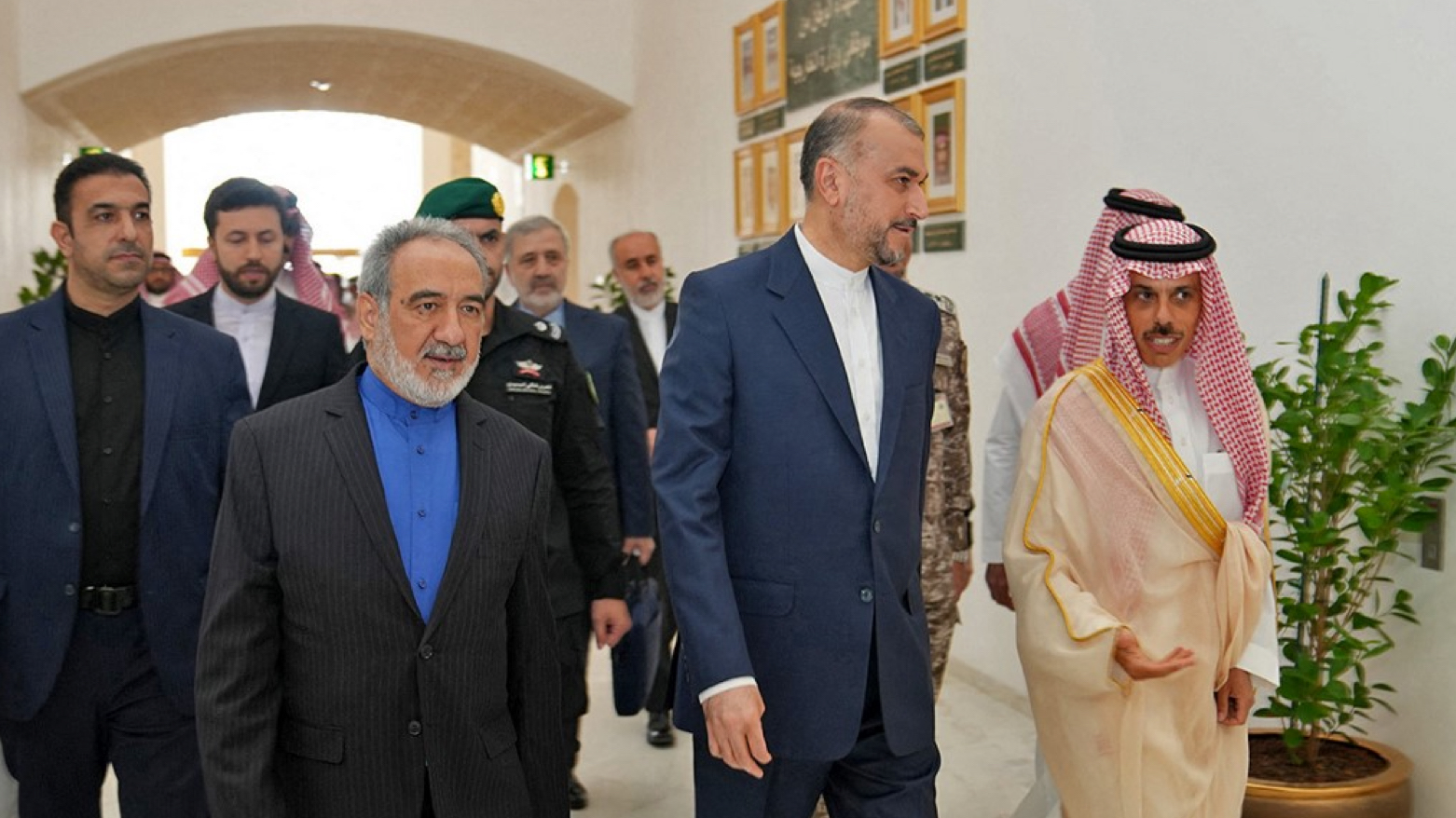Iran FM touts unity on first Saudi visit since ties restored

Iran's top diplomat preached unity and dialogue during a visit to Saudi Arabia on Thursday, his first since the two Middle East rivals announced a surprise rapprochement in March.
Hossein Amir-Abdollahian also took the opportunity to reiterate the Islamic republic's support for the Palestinian cause at a time when Riyadh is in discussions with the United States about potentially normalising ties with Israel.
Ties between Sunni-majority Saudi Arabia and Shiite-majority Iran "are progressing in the right direction," Amir-Abdollahian told reporters at a press conference with his Saudi counterpart Prince Faisal bin Farhan, touting economic and security cooperation without announcing any new agreements.
Thursday's meeting in the Saudi foreign ministry's Islamic Solidarity Hall "will be a prelude to the meeting of the heads of the two countries", he said, without specifying when President Ebrahim Raisi would visit Saudi Arabia at King Salman's invitation.
"We are sure that these meetings and cooperation will help the unity of the Islamic world," he added, proposing a "regional dialogue" but providing no details.
The foreign ministers did not take questions.
The two countries severed ties in 2016 after Saudi diplomatic missions in Iran were attacked during protests over Riyadh's execution of Shiite cleric Nimr al-Nimr.
But in March, a China-brokered deal saw the long-time rivals agree to restore diplomatic relations and reopen their respective embassies.
In June, Iran reopened its embassy in Riyadh with a flag-raising ceremony.
Its new ambassador, Alireza Enayati, travelled with Amir-Abdollahian to Riyadh on Thursday.
Prince Faisal confirmed on Thursday that the Saudi embassy in Tehran has also resumed operations, which he described as "another step in the development of relations between the two countries".
Deep-rooted issues
Amir-Abdollahian's one-day stop in Riyadh came two months after Prince Faisal became the first Saudi foreign minister to travel to Iran since 2006.
The visits and the reopening of embassies represent "important confidence-building measures", said Anna Jacobs, senior Gulf analyst for the International Crisis Group.
"Saudi-Iran rapprochement is still in its early phases, and it's still very unclear how the two sides will address their many points of friction," Jacobs said.
"Resuming diplomatic ties and engaging in more dialogue is a good start, but it's difficult to tell if this will be enough to resolve the long-standing issues in their relationship."
Iran and Saudi Arabia have backed opposing sides in conflict zones across the Middle East for years, including in Yemen, where in 2015 Riyadh mobilised an international coalition against Iran-backed Huthi rebels who had toppled the internationally recognised government the previous year.
Since the March deal, Saudi Arabia has ramped up a push for peace in Yemen, holding direct talks with Huthi leaders in April in the Yemeni capital Sanaa.
It has also championed the return of key Iran ally Syria to the Arab fold at a summit in May.
On Wednesday, Iranian state media said Iranian and Saudi military officials met in Moscow on the sidelines of a security conference.
At the same time, the two sides have exchanged competing statements over a disputed gas field that Saudi Arabia plans to develop jointly with Kuwait.
Iran also wants to explore and exploit the field, known as Arash in Iran and Dorra in Kuwait and Saudi Arabia, which has long been point of contention between the three countries.
"The dispute over the Dorra/Arash gas field shouldn't be a major obstacle to improving ties, and it could even be an opportunity for dialogue," Jacobs said.
"But from the Saudi perspective, they are more concerned about Yemen, threats to maritime security in the Gulf, and regional files like Syria."
Riyadh is also engaged in negotiations over a possible deal -- still widely seen as a long shot -- that would see it recognise Israel in exchange for conditions including security guarantees from the United States and concessions from Israel on the Israeli-Palestinian conflict.
Standing next to Prince Faisal on Thursday, Amir-Abdollahian described the conflict as "the most important issue in the Islamic world", adding: "We continue to support Palestine."
